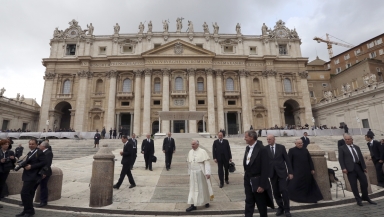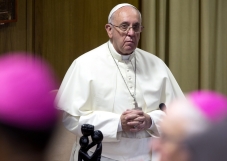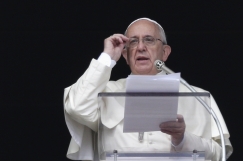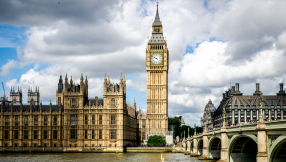
Pope Francis and the general secretary of the World Evangelical Alliance (WEA) have hailed a "new era" in relations between evangelicals and the Roman Catholic Church.
A WEA delegation met with Pope Francis and representatives of the Pontifical Council for Promoting Christian Unity (PCCU) today to talk about areas of potential collaboration on areas of common concern.
In his address to the PCCU, WEA general secretary Dr Geoff Tunnicliffe said: "We acknowledge the differences between our traditions, yet also affirm the common tasks we have shared in the past and pray that we can build on those.
"Evangelicals are a very diverse group that includes peoples and churches from Pentecostal traditions, Reformed, Baptist and independents. We share a common faith in our Lord Jesus Christ and a desire to serve God's kingdom, we have a heart to encourage personal spiritual renewal and transformation and a passion to make Jesus known around the world. As we seek to obey Christ, we see this time as a new era in Evangelical-Roman Catholic relations."
He said that there were many countries where believers of both communities work together. "It is important that the world knows that there are many localised partnerships between Catholics and evangelicals, which are developing into large-scale collaborations in response to tragic social problems," he said. "For example, we know that in many cities around the world, evangelical and Roman Catholic Christians are cooperating to respond to human trafficking, while at the same time evangelical and Catholic scholars and activists have begun collaborating to analyse and respond to the terrible problems of religious persecution."
At the meeting, the WEA suggested the Cradle of Christianity Fund, nuclear weapons disarmament and seeking justice for the extreme poor as some of the specific areas of possible collaboration between the WEA and its partners and the respective offices of the Vatican.
However, there are also theological differences between the two bodies that have historically been an obstacle to collaboration even in areas of common concern. Dr Tunnicliffe said that cooperation on social issues should be "accompanied by a new level of public discussion of our core beliefs, on matters where Evangelicals and Catholics both agree and where we differ".
"Deeper levels of joint love of neighbors should be accompanied by higher levels of public discussion of fundamental theology and ethics between Roman Catholics and Evangelicals," he said. "This will have educational value for our own church members; it will provide answers for seekers who are interested in the Christian faith, whose interest and questions may have been awakened by our shared love of neighbors; and it sets healthy patterns for principled public discussion in a multi-religious world."
In his address to the delegation, Pope Francis said: "From the beginning, there have been divisions among Christians and sadly, even today, conflicts and rivalries exist between our communities. This weakens our ability to fulfill the Lord's commandment to preach the Gospel to all peoples. Our divisions mar the beauty of the seamless robe of Christ, yet they do not completely destroy the profound unity brought about by grace in all the baptised.
"The effectiveness of the Christian message would no doubt be greater were Christians to overcome their divisions, and together celebrate the sacraments, spread the word of God, and bear witness to charity."
He added that talks between the WEA and the PCCU had "opened up new horizons by clarifying misunderstandings and by showing the way to overcoming prejudices". "It is my hope that these talks may further inspire our common witness and our efforts to evangelise," he said.















